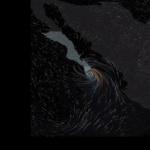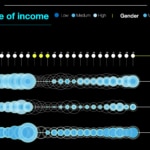UN Global Pulse, BBVA announce partnership and new project measuring economic resilience to disasters with financial data
The analysis of financial transaction data can provide critical insights into understanding the economic resilience of people affected by natural disasters, as revealed by a new research project from UN Global Pulse and BBVA Data & Analytics, BBVA’s center of excellence in financial data analysis.

NEW YORK, NY, 9 September, 2016 — As temperatures climb and oceans warm, regions will face drastic changes and will be increasingly affected by natural disasters. In the face of climate change, how could measuring economic activity in real-time be used to design feedback loops into disaster preparation, recovery and reconstruction programmes and policies?
To find out, BBVA Data & Analytics has partnered with UN Global Pulse and is throwing its weight behind a project using financial transaction data to understand how people behave before and after natural disasters. The initial results from this unique collaboration will be presented later this month at the Bloomberg Data for Good Exchange event in New York.
“Financial transaction data is all around us and using it to protect the livelihoods of individuals should become an integral part of companies’ contribution to society,” said Elena Alfaro, CEO of BBVA Data & Analytics.
The project looked at the economic impact of Hurricane Odile on the Mexican state of Baja California Sur (BCS). Findings showed that, at the household level, people spent 50% more than usual on items such as food and gasoline in preparation for the hurricane.
The project analyzed Point of Sale (POS) payment and ATM cash withdrawal data from more than 100,000 BBVA Bancomer clients, totaling 25,000 daily transactions. Data analytics were employed to derive proxy indicators of the economic impact and market resilience of people in the region.
In the aftermath of Hurricane Odile, economic activity decreased across the region. It took two weeks for POS and one week for ATM transactions to bounce back to normal. Measuring the level of transactions exactly 30 days after impact, the research showed that 30% fewer POS transactions and 12% less cash withdrawals were registered, compared to a normal period.

“This type of real-time quantitative data on how people prepare for disaster could be used to inform proactive, targeted distribution of supplies or cash transfers to the most vulnerable, at risk populations,” said Miguel Luengo-Oroz, Chief Data Scientist at UN Global Pulse.
“With this project, we have created a replicable and evidence-based approach to understanding vulnerability. New insights can help authorities improve community resilience, which benefits the vulnerable and is also good for business continuity. Displacement by floods and earthquakes, hurricanes or fast-moving epidemics all represent a risk to economic sustainability,” BBVA expert Elena Alfaro added.
This new partnership lays the groundwork for developing tools and approaches needed to transition from case studies to operational use during disasters and to explore their potential to inform humanitarian aid and relief efforts in greater detail.
High-resolution images and data visualizations of the Hurricane Odile research project are available at: odile.bbvadata.com
2-page project summary downloadable at http://unglobalpulse.org/projects/using-financial-transaction-data-measure-economic-resilience-natural-disasters